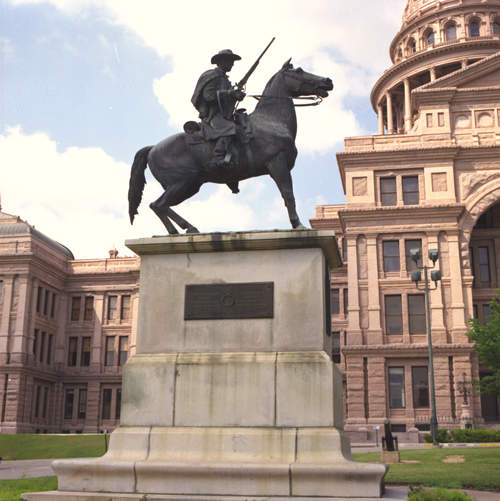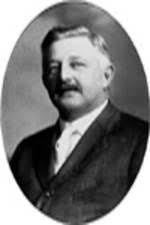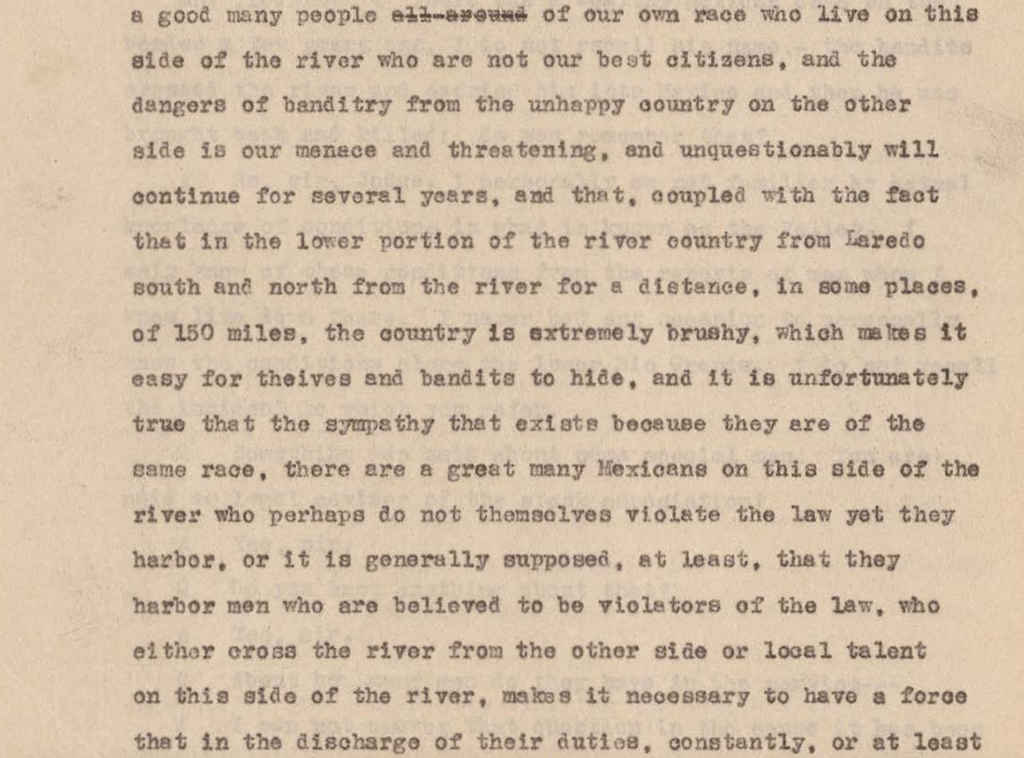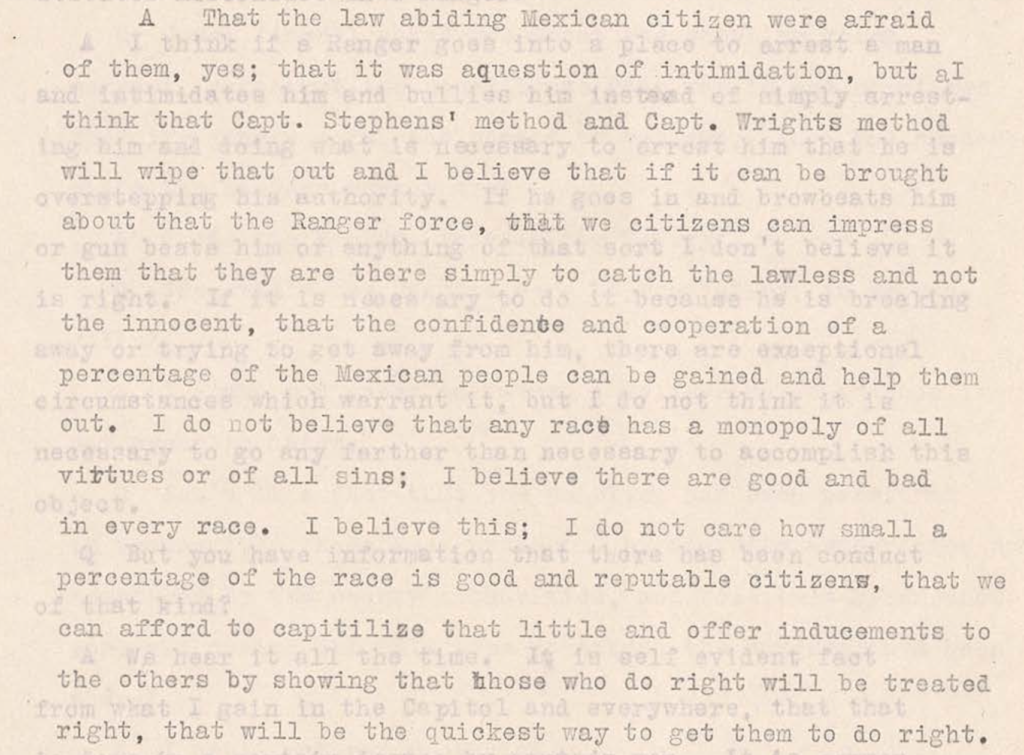#OTD on January 31, 1919, the second day of the Joint Committee of the Senate and the House in the Investigation of the Texas State Ranger Force (hereafter, “Canales Hearings”) took place in the Railroad Commission Hearing Room on the 2nd floor of the state capitol. Canales’ walk to the hearings was literally shadowed by Texas history, as the capitol grounds include the “Heroes of the Alamo Monument,” a statue marking Terry’s Texas Rangers, and a monument to Texas Confederate soldiers.

The day’s conversation introduced the major topics and disputes of the hearings. Canales elicited evidence of Ranger brutality, murder, and law-breaking, supported even by witnesses who were part of the Anglo elite of the borderlands. The stakes for Texas’ political establishment were high. Caesar Kleberg, manager of the King Ranch and member of the State Democratic Committee, indicated that he had 25-30 witnesses who wished to give testimony about the “general work and efficiency” of the Rangers.

One of Kleberg’s witnesses, Cameron Co. attorney Wiliam Morrison, concluded that the Rangers were “a God-send to the Valley” for restoring order, though he acknowledged that Ranger Daniel Hinojosa was a violent drunk and that collectively Rangers killed between 100 and 5,000. Dayton Moses, attorney for the Texas Cattle Raisers Association, whose inspectors included dozens of “Special Rangers,” portrayed Mexican Americans as sympathetic to “bandits” because “they are of the same race.”

Canales, in contrast, focused his questions on specific actions, including the hanging of Adolfo Muñiz in July 1915, four prisoners taken after the train derailment of October 1915, and seven unidentified men whose corpses were hung from a train station in Ebenezer.
![La Matanza historical marker. Placed near the site of Adolfo Muñiz’s July 1915 lynching. See https://www.hmdb.org/m.asp?m=167028]](https://refusingtoforget.org/wp-content/uploads/2023/01/5.-La-Matanza-marker.jpeg)
Canales also focused on specific actions by specific Rangers, included Daniel Hinojosa’s reputation for violence and drunkenness, and the hiring of Henry Ransom as a Ranger Captain while free on bail for charges of shooting Houston’s police chief. Even witnesses who were a part of the borderlands Anglo elite gave testimony that bolstered some of these points.
A good example is Alba Heywood, a San Benito land and water developer who played a key role in the transformation of the Rio Grande Valley, including founding San Benito, and who wanted Rangers to remain free of local political control. “Law abiding Mexican citizens” and “innocent people” were afraid of Rangers, he insisted. Heywood recalled finding the bodies of two men on his property, dead from gunshot wounds, and the bodies of others who had been badly beaten in 1915-16. In contrast with other witnesses, Heywood insisted that “there are good & bad in every race” and fairness rather than violence would bring peace, since “showing that those who do right will be treated right is the quickest way to get them to do right.”

The hearings concluded that Friday afternoon, to resume the following Monday. Incredibly, the Chair charged Ranger Frank Hamer with serving notice to witnesses called for Monday. That day of hearings will be treated in our next entry.
This entry is a part of the #OTD in Ranger history campaign that Refusing to Forget is running this year. Follow this website or @Refusing2Forget on Twitter to learn more. Key secondary sources for this thread include Benjamin Johnson’s Revolution in Texas (pp 169-175), Monica Muñoz Martínez’s The Injustice Never Leaves You (182-216), Sonia Hernández and John Morán González, Reverberations of Racial Violence, and Richard Ribb, “Reader’s Guide to the Canales Hearings.”
